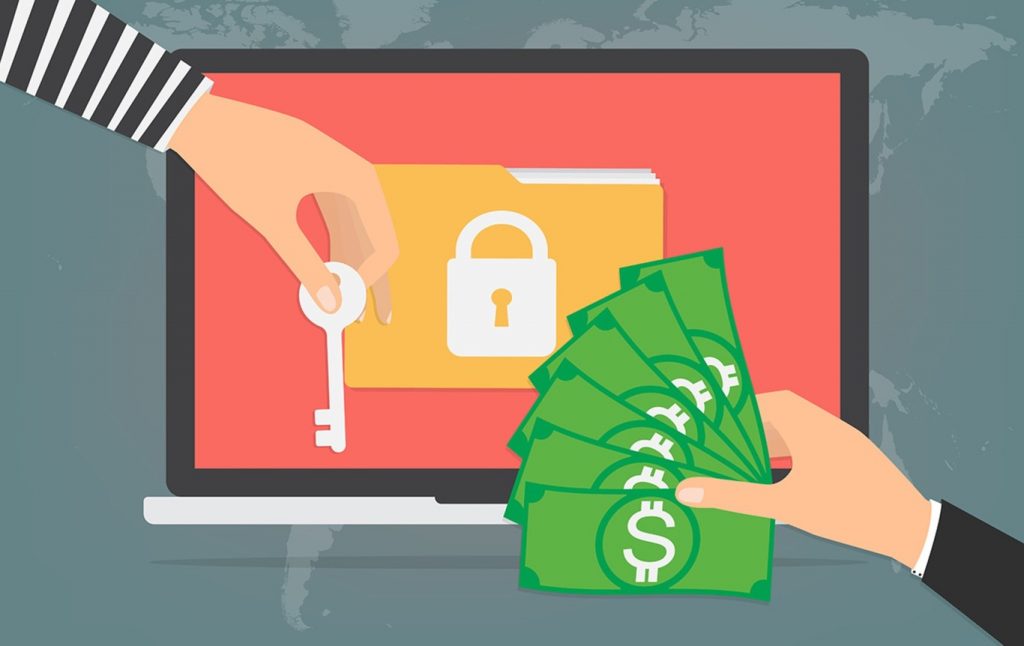What is Ransomware?
Ransomware is a malicious software program that infects your computer and displays messages that require payment of money to restore the system to function. This type of malware is a criminal money-making system that can be installed through deceptive links included in an email message, instant message, or website. Ransomware has the ability to lock a computer’s screen or encrypt important default files with a password.
Ransomware is usually transmitted as a Trojan or a worm, infecting the operating system, for example, with a downloaded file or exploiting a software vulnerability. At this point, the ransomware will launch, encrypt the user’s files with a certain key, known only to the creator of the ransomware, and prompt the user to claim it in exchange for payment.
There are many types of ransomware and some of those are the Scareware:
Scareware: is the simplest type of ransomware. Specifically, it uses intimidation or intimidation tactics to make victims pay. This type of malware can take the form of an antivirus software program that displays a message that the computer has various problems and the user must make an online payment to correct them. The level of this type of attack is variable. Sometimes it overwhelms users with endless alerts and pop-ups. In others, the computer stops working entirely.

Typical attacks usually ask for amounts of $ 100 to $ 200. Other attacks are much more ambitious, especially if the attacker is aware that the data they captured can cause significant direct financial losses to a business. As a result, the cybercriminals who orchestrate these scams can make a lot of money.
Most of the ransomwares act like this:
▸Attachments in emails.
▸Videos of pages of doubtful origin.
▸System updates.
▸Programs, in principle, reliable such as Windows or Adobe Flash.
Computer security experts have suggested preventive measures to deal with ransomware. Using software or security policies to block known payloads will help prevent infection, but will not protect against any attack. Maintaining offline backups in places inaccessible to the infected computer, such as external hard drives, prevents ransomware from accessing them, helping to restore data in case of infection.
Computer users should check that their firewalls are activated, avoid visiting disreputable websites, and be careful when opening any suspicious email messages. By choosing a reputable antivirus software solution provided by a reputable company, you can protect your computer against the latest ransomware threats.




[…] information will come out.Know more about Ransomware here:Jokeroo – The ransomware that kidnapsRansomware – Cyber attacks to make you payWannaRen – The day the Ransomware […]